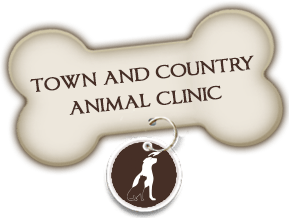Did you know that up to one in every five of our canine pals may suffer from allergies? This is actually quite similar to the numbers for allergies in humans. About one in four people are thought to have allergies. That equates to almost 100 million individuals just in the United States! In this piece, a Mt. Airy, GA veterinarian discusses dog allergies.
What Are the Most Common Allergies in Dogs?
Skin disorders are possibly the most common allergy among our canine pets. Many of these are caused by parasites, such as fleas. Dogs can also develop contact dermatitis, which is a sort of skin allergy.
What is the best way to care for a dog with allergies?
The first thing you should do is take Fido to your Mt. Airy, GA veterinarian for an accurate diagnosis. That way, you’ll be able to get your canine companion started on the right treatment.
There are quite a few things you can do at home. Vacuuming and dusting regularly can help remove dust, fur, dander, pollen, and other irritants from your carpets and furniture. Changing your air filters regularly helps, too.
We would also recommend that you wash your pet’s bedding frequently. Though you’ll need to double-check the label, if possible, wash in hot water with unscented detergent and tumble dry.
This is also something to think about when decorating. If it’s time to get a new sofa, choose one with an allergy-friendly covering, such as leather. You can use washable throw blankets to make it more comfy and cozy. You may also wish to consider window coverings that do not trap dust.
Another thing you may do is start tracking pollen counts. You can download apps to help with this. When levels are high, minimize your canine companion’s outdoor activity.
It may also help to wipe Fido’s paws and tummy before bringing him inside to remove traces of dust, grass, and pollen. Get into the habit of keeping wipes—or water and clean cloths—near the door you take him in and out of. (Treats will help get him on board with the idea.)
Finally, keep up with Fido’s parasite and grooming needs. Contact your veterinarian for further information.
What Should I Do If My Canine Friend Has Food Allergies?
Food-related allergies can prove a little challenging. You will need to determine exactly what your four-legged friend is reacting to. This may take some time. Your Mt. Airy, GA veterinarian may advise you to put Fido on a very bland diet for a while, until his symptoms improve. Once symptoms have subsided, you might begin reintroducing things one by one to see what creates a reaction.
What Are the Signs of Allergies in Dogs?
It is not always easy to tell when your furry friend’s best buddy has allergies. The warning signs can vary significantly from pooch to pooch.
Here are some things to look for:
- Licking the paws, legs, or tail
- Itchiness
- Hives
- Swelling
- Licking
- Skin problems include redness, flaking, and irritation.
- Coughing
- Dander
- Face/head rubbing
- Itchy ears
- Stubborn ear infections
- Runny eyes
- Vomiting
- Diarrhea
- Hair loss
- Sneezing
Many of these symptoms can be indicative of a wide range of conditions, including allergies. That’s why it’s critical to take Fido to your veterinarian for an accurate diagnosis.
What Causes Dogs To Have An allergic reaction?
Allergies affect dogs and people in similar ways. This is generally the result of the immune system being overly protective of the body.
Over time, Fido’s immune system may develop an intolerance to a specific thing. This is typically some type of protein. It may be insect protein, plant protein, animal protein, or dietary protein.
Once your puppy’s immune system becomes highly reactive to a substance, it initiates an immunological response against it, and begins to generate antibodies. This causes a chain reaction, resulting in the production of histamines. These trigger the reactions that can make your poor pooch uncomfortable, such as itching and swelling.
This is, of course, the condensed version: information concerning allergens and the immune system’s reactions to them can be quite complex. For further information, contact your Mt. Airy, GA veterinarian.
What Types of Allergies Can Dogs Develop?
Dog allergies, like human allergies, fall into several categories.
Here are the common ones:
Seasonal Allergies
Seasonal allergies are essentially environmental allergies that flare up at specific periods of the year. This list includes a variety of tree pollen, plants, grasses, leaves, and flowers. Keeping Fido inside a lot won’t necessarily protect him much: your canine companion can pick up pollen on his paws and tummy while running and playing in the yard.
Food Allergies
Food allergies are among the most common allergies in dogs. In most cases, the culprit is a single substance, normally a type of protein. Many puppies are allergic to certain meats, including beef, chicken, and pork. Others react to corn or grains. Legumes and root vegetables may also disagree with Man’s Best Friend.
Contact Allergies
Contact allergies happen due to direct contact. These can be caused by a variety of substances. Certain fabrics, such as your carpet or sofa material, ingredients in Fido’s dog shampoo, floor waxes, and mulch are examples of this. Fido may potentially be allergic to dander or to your cat.
Insect Allergies
Fido can react to a variety of insect bites, including fleas, blackflies, deer flies, horseflies, mosquitoes, ants, wasps, bees, and hornets. Our canine companions can also respond to arachnids, such as spiders and ticks.
Environmental Allergies
As the name implies, an environmental allergy is a response to anything in the environment. Pollen, dust, mold, grass, and leaves, as well as cigarette smoke or perfume, are among the many possible reasons.
Anaphylactic Shock
This is the most severe sort of allergy. These could be caused by bee stings, severe food allergies, or vaccination reactions. This may result in a severe reaction, such as fainting or seizures. These reactions could be fatal. Fortunately, they are rare.
How do you treat Doggy allergies?
Allergies cannot be cured, but there are steps you can take to help keep your pet comfortable. The first step is to schedule an appointment with your veterinarian to identify what is causing your pet’s sensitivity. At that point, you and your veterinarian will be able to discuss treatment alternatives. These may include medications, such as anti-inflammatory medicines, fatty acid supplements, and topical medication. Some dogs respond to desensitization. In other circumstances, simply switching shampoos may be enough. If your furry friend has food allergies, your veterinarian may recommend a specific diet.
How Old Are Dogs When They Develop Allergies?
Fido can develop allergies to a wide range of items. These allergies can develop at any point in his life. However, dogs rarely develop allergies before the age of six months. Most pups are at least a year or two old. There is a reason for this: Fido’s immune system needs some time to realize that it does not like something.
Do you know or suspect that your canine best buddy may have allergies? Contact us here at your Mt. Airy, GA veterinary clinic, today. We are dedicated to providing both excellent veterinary care and top-notch customer service.






